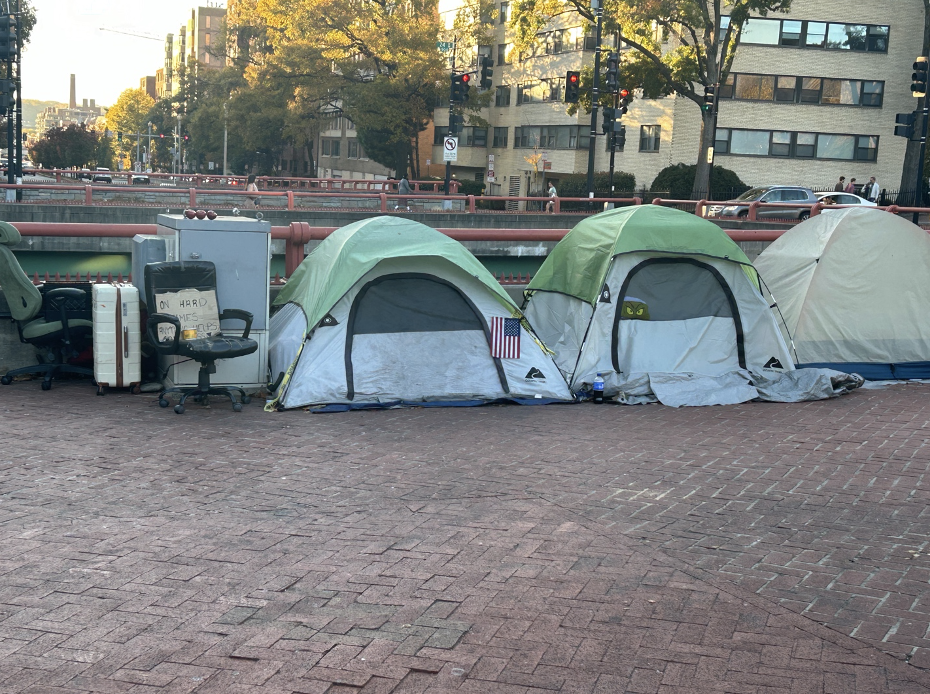Political Violence Poses A Growing Threat To D.C.’s Unhoused Population Ahead Of Election Results

Tents at the intersection of Washington Circle NW and K ST NW located by Foggy Bottom Metro station in Washingtoin, D.C. In May 2024, about 50 people were displaced from large encampments in Foggy Bottom, about a mile from the White House. | Source: Donovan McNeal
Washington, D.C.—As the presidential election approaches, the nation’s capital is bracing for potential unrest, and Washington, D.C.’s homeless population may be among those most vulnerable to the fallout.
According to Street Sense Media, D.C. has the highest rate of homelessness in the country, and the city’s unhoused individuals face unique risks—including exposure to political violence both before and after Election Day.
Christy Repress, President and CEO of Pathways to Housing, DC leads the largest homelessness outreach team. Since 2006, Pathways has coordinated with city and federal agencies to prepare street outreach initiatives for high-stakes events like inaugurations. This year, as political tensions rise, Repress and her team are again taking precautions.
According to Repress, 83% of individuals experiencing homelessness in D.C. identify as Black or African American.
“Because of decades of racism in housing, education, employment, healthcare this population is particularly vulnerable,” she noted. She added that the risk of political violence can be amplified by the racial demographics of those experiencing homelessness, with extremist groups sometimes targeting marginalized communities. “With increased violence linked to racism from extremist groups, including white nationalism there’s a real level of threat to people.”
Recent data underscores these dangers
The National Coalition for the Homeless reported 97 recorded attacks against unhoused individuals between 2019 and 2022, with 48% of these resulting in fatalities. Repress emphasized that this only includes reported incidents, suggesting the true scope of violence may be even greater. Compounding the risk, a recent 2024 Supreme Court ruling in Johnson v. Grant Pass stated that “the U.S. Constitution does not protect homeless people against cruel and unusual punishment,” a decision that some advocates worry could embolden acts of aggression.
In response to these threats, Repress advocates for more robust education and outreach efforts. “We have very intensive protocols around working to educate our neighbors experiencing homelessness around what that means, really trying to stay on top of that in real time,” she said. Pathways has used city text alerts in the past to notify people about road closures, potential hazards, and other critical information. Repress noted that without access to these resources, many unhoused individuals risk losing important documents or missing essential updates, which can further jeopardize their safety.
Amid Election Day, the city’s efforts to protect its most vulnerable residents are more urgent than ever. With adequate resources and continued vigilance, organizations like Pathways to Housing DC hope to mitigate the risks faced by Washington, D.C.’s homeless population during this politically charged time.
SEE ALSO:
Five Generations Strong: Howard University’s Legacy Of Black Excellence Through My Family’s Eyes
Under The Red Hat: A Day In MAGA At An HBCU
[zype id=”6728e06089ed6b000120780f”]


